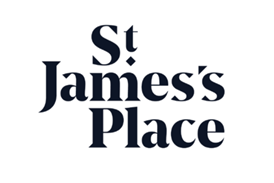Charterparty - Construction - Time charterparty
M.H. Progress Lines SA v Orient Shipping Rotterdam BV and another case: Queen's Bench Division, Commercial Court (Mr Justice Teare): 28 November 2011
The owner chartered a vessel to the charterer under a time charterparty (the head charterparty) on an amended New York Produce Exchange 1946 form. The charterer sub-chartered the vessel to the sub-charterer. Under clause 26 of the head charterparty all cargo claims were to be settled as per Nype Interclub Agreement 1996 (ICA 96).
Clause 39(2) of the head charterparty specified that any claim had to be made in writing within 12 months of final discharge and where the provision was not complied with the claim was deemed to be absolutely barred (the Centrocon Arbitration Clause). ICA 96 was the third edition of the Interclub Agreement. It applied where a cargo claim had been properly settled or compromised or paid by the owners or the charterers and apportionment of such a claim was sought. Under clause 6 of ICA 96, recovery would be deemed to be waived or barred unless written notification of the cargo claim had been given to the other party to the charterparty within 24 months of the date of delivery of the cargo.
Under clause 2 of ICA 96, the terms of ICA 96 were to apply notwithstanding anything to the contrary in any provision of the charterparty; in particular clause 6 was to apply notwithstanding any provision of the charterpaty or rule of law to the contrary. A claim was brought against the sub-charterer in respect of a cargo. It settled the claim and sought recovery of that sum from the charterer either as an indemnity pursuant to ICA 96 or by way of damages for breach of the sub-charter.
The charterer in turn sought to pass the claim ‘up the line’ to the owner under the head charterparty. Although the sub-charterer had to have been aware of the cargo claim within the one year limitation period prescribed by clause 39 of the charterparty, it failed to notify the charterer in writing within that time and did not commence proceedings against the charterer within 12 months of the final discharge.
The matter was referred to arbitration and an award was made in favour of the sub-charterer with the arbitrators holding that the time limit in clause 39(2) did not apply to a cargo claim which was settled and apportioned in accordance with ICA 96. The owner appealed pursuant to section 69 of the Arbitration Act 1996. The charterer did not participate but was content to be bound by any decision of the court.
The issue of law which had to be determined was whether or not the one-year time-limit in clause 39(2) in the head charterparty applied to cargo claims which were settled and apportioned in accordance with ICA 96. Those contractual provisions gave rise to two possible difficulties of construction. First, both clause 39 of the charterparty and clause (6) of ICA 96 provided for time bars but they were in different terms. Which of those applied to cargo claims under ICA 96? Secondly, clause (9) of ICA 96 incorporated the law and jurisdiction provisions of the charterparty. Did those provisions include the time bar in clause 39? The appeal would be dismissed.
As a result of clause (2) of ICA 96, the time bar provision in clause (6) of ICA 96 prevailed over any other right which might appear to be in conflict, such as a Centrocon Arbitration Clause. That was the manner in which the charterparty would be understood by a reasonable man having the background knowledge reasonably available to the parties. If he asked himself what time bar governed claims under ICA 96 he would find two potentially applicable time bar provisions expressed in different terms.
He would also note that clause (2) of ICA 96 expressly dealt with the question of what should happen if there were a time bar in the charterparty contrary to the time bar provision in ICA 96, namely, that the time bar provision in ICA 96 'shall apply'. He would conclude that the time bar in ICA 96 was the applicable time-limit. The incorporation of the Interclub Agreement 'cut across' the liabilities and defences set out in the other terms of the charterparty (see [18], [20], [37] of the judgment).
In the instant case, clause 39 also provided for a time bar, namely a requirement which, if not complied with, resulted in the claim being waived and absolutely barred. The requirement in each case was different. In one case, it was a requirement that written notification of the claim be notified in writing within 24 months of the date of delivery. In the other case, it was a requirement that a claim be made in writing and arbitration commenced within 12 months of final discharge. On the basis that the requirement constituting the time bar in clause 39 was different from the requirement constituting the time bar in ICA 96, clause 39 was contrary to ICA 96. Such conflict was resolved by clause (2) of ICA 96 providing that the applicable time-limit was clause (6) of ICA 96(see [20], [24] of the judgment). The arbitrators had reached the correct conclusion (see [41] of the judgment).
Idaho D/S A/S v Peninsular and Oriental Steam Navigation Co, The Strathnewton [1983] 1 Lloyd's Rep 219 applied; Sabah Flour and Feedmills v Comfez Ltd [1988] 2 Lloyd's Rep 18 considered; Ben Line Steamers Ltd v Pacific Steam Navigation Co, The Benlawers [1989] 2 Lloyd's Rep 51 considered.
Nigel Jacobs QC (instructed by Clyde & Co LLP) for owner; Nigel Cooper QC (instructed by Bentleys Stokes & Lowless) for the charterer.

























No comments yet